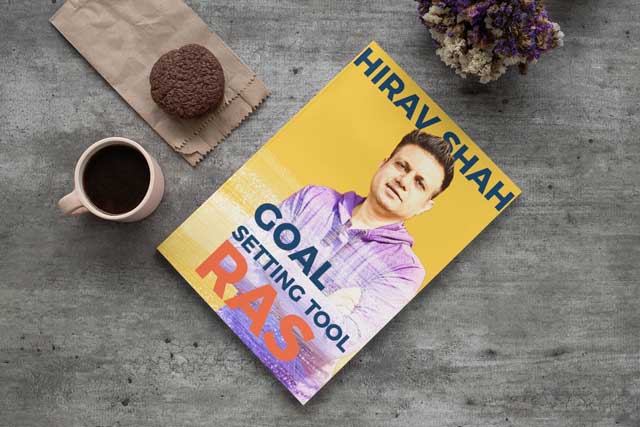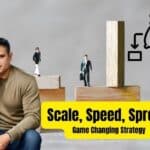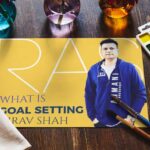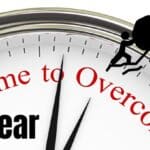Every one of us possesses mental faculties within our minds that can play a vital role in shaping a better life. Through these mental faculties, we have the ability to interpret the information we receive through our physical senses. Speaking of these physical senses, we are blessed with five remarkable ones: sight, hearing, taste, smell, and touch.
Imagine these physical senses as small antennas on the conscious part of the mind, constantly picking up signals from the world around us.
We are inherently wired to experience life through our physical senses; they are always active and provide us with a direct connection to the external world. However, it’s important to note that, as renowned Astro Strategist and Business Astrologer Hirav Shah points out, many people react instinctively to these sensory signals, often without intellectual contemplation. These signals are typically filtered through our existing mental framework and self-image, also known as our reference frame. The variation in these signals can lead to emotional ups and downs, and this roller coaster ride can sometimes be overwhelming, resulting in less desirable outcomes.
But here’s the exciting part: there are more constructive ways to navigate this journey of sensory interpretation. Let’s delve into these possibilities together!
Think of what our physical senses perceive as input for our conscious mind, often referred to as the intellectual mind.
Each one of us possesses a set of six intellectual faculties, which can be likened to mental muscles. These faculties are the key to harnessing our potential and transforming our lives.
Table of Contents
Do you know what mental muscles you possess?
As per Hirav Shah, these are:
- Perception
- Will
- Memory
- Logic
- Creativity
- Intuition
Hirav Shah explains, “We all have been gifted with these 6 intellectual faculties and we have developed them differently. They are our mental muscles that can and should be flexed. Let’s explore some of them further.
PERCEPTION
Perception is how we choose to interpret the world. When we change our perception everything starts to change. Is the work half done or not ready? My favorite example is when my daughter, Helena, 5, said during dinner: ‘This soup tastes yucky!’ David, 7 years, then responds: ‘Helena, it is not yucky, the soup just is. You may think it tastes yucky, but I think it tastes good. The food just is.’
WILL
Will is the ability to focus, regardless of circumstances – to actively set priorities and to stand your ground in face of opposition. Even if people say: ‘But you don’t have a head for that’ or ‘How come you believe you can handle that?’ ‘Nobody’s done that before.’
MEMORY
Having bad memories is a myth. There are only weak or strong memories. We can recall anything if we train. Harry Lorayne and Tony Buzan teach people to memorize the bible. Bob Proctor, my mentor, has seen Harry memorize an entire Time Magazine on a flight between New York and Toronto.
REASON
is the ability to question, apply logic and draw conclusions based on facts or earlier experiences. School places heavy emphasis on training this intellectual faculty.
CREATIVITY
is our given ability to imagine, to originate new ideas. Everybody is creative. Creative imagination is more powerful than just reasons and knowledge. If you do not have an answer, you can create an answer, or, you may be able to develop a method that will give you an answer. Maybe, even a lot of answers. Creativity is a skill that many of us have limitations due to experiences in school or with our parents. ‘Don’t sit and daydream again.’ ‘You have to stop dreaming if you want to get somewhere.’
Einstein said: “Logic will take you from A to B, imagination will take you anywhere. Imagination is more important than knowledge, because knowledge is limited to what we know and can understand, while imagination surrounds the whole world and everything that ever will be known or understood.”
INTUITION
is the faculty closest to the subconscious mind. It is picking up vibrations of things happening under the surface. Gut feel is something most of us have, from time to time. Whether we trust it, is another story. Sometimes you just know something, but you can’t explain why or how. Other people have highly developed intuition and more often than not they know who’s calling on the mobile before they pick up the phone.”
Conclusion
Making your business to stand out in a crowded world is the slow process, your intellect works at it best when mental muscles you possess work at optimum level. It’s a hard core truth about emotions & decisions. Emotions mold decisions via the Grade of Thought. In addition to influencing the content of thought, emotions also act upon the depth of information processing related to decision-making.
Hirav Shah concludes by saying, “When you put these intellectual faculties to work, you will be able to control your emotional mind and emotional state. Instead of reacting, you will be in a position to respond to the events around you.
Through using these mental muscles, we can choose the thoughts we want, and thus impact the vibrations we are in, what mood we are in, and thus the results we create and get. So keep flexing your mental muscles!“






























